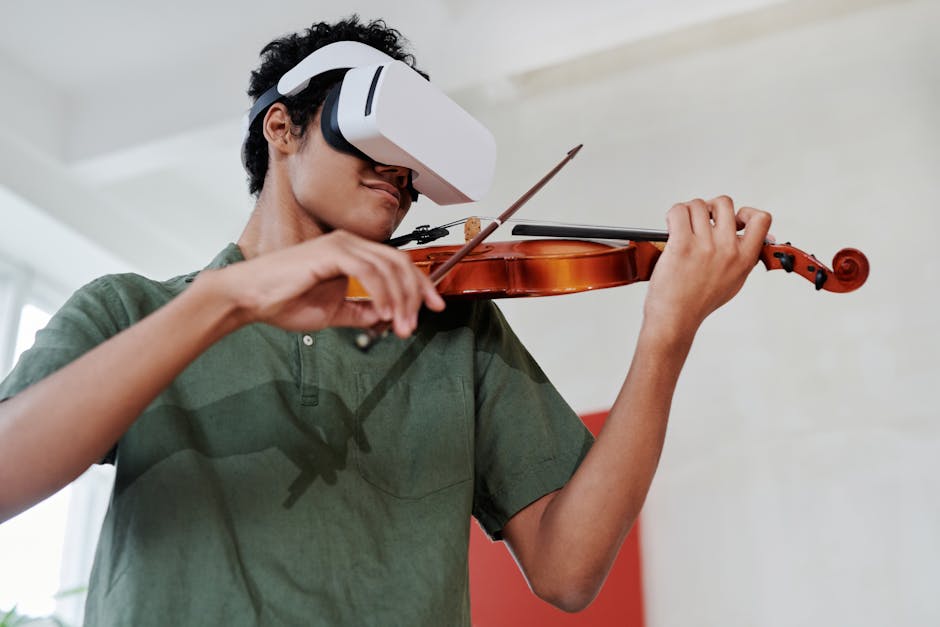A pivotal force reshaping the industry is technological disruption. Streaming services, once a disruptive force themselves, are now facing their own evolution. While they consolidated power over the past decade, challenges remain. The issue of fair compensation for artists persists, fueling ongoing debates about revenue models and the role of algorithms in shaping listener experiences. We can expect to see further refinements in personalized recommendations, leveraging artificial intelligence to create more nuanced and targeted playlists and content suggestions. This personalized experience will likely extend beyond music, incorporating visual elements and interactive narratives to create immersive entertainment experiences.
Furthermore, the metaverse presents a potentially transformative frontier. While still in its nascent stages, the integration of virtual and augmented reality into entertainment promises to redefine audience engagement. Imagine concerts performed in meticulously crafted virtual worlds, accessible to fans globally, with interactive elements that allow for a far more personalized and participatory experience than traditional venues permit. This shift could lead to entirely new forms of artistic expression, tailored specifically to the immersive possibilities of virtual environments. However, the metaverse also raises questions concerning accessibility, affordability, and the potential for further exacerbating existing inequalities within the industry. Careful consideration of these issues will be crucial for its successful integration into mainstream entertainment.
The rise of user-generated content continues to exert considerable influence. Platforms like TikTok and YouTube have empowered individuals to create and share their own entertainment, fostering a democratization of content creation unseen before. This has both positive and negative implications. On the one hand, it provides a powerful platform for emerging artists and creators, bypassing traditional gatekeepers and directly connecting with audiences. On the other hand, it intensifies competition, requiring creators to constantly innovate and adapt to remain relevant in an increasingly saturated market. The future likely involves a more symbiotic relationship between established institutions and independent creators, with collaborative projects and strategic partnerships becoming increasingly common.
Artificial intelligence is another game-changer, impacting both the creative and business sides of the entertainment sector. AI-powered tools are already assisting in music composition, sound design, and video editing, potentially boosting productivity and allowing artists to explore new creative avenues. However, the ethical implications of AI-generated content are significant. Concerns arise about copyright, originality, and the potential displacement of human artists. Careful regulation and responsible development will be crucial to ensure that AI serves as a tool for creative augmentation rather than outright replacement. We anticipate increased debate on the legal and philosophical implications of AI-generated art, forcing a reassessment of existing copyright frameworks.
The changing nature of consumption patterns also dictates the industry’s future trajectory. The decline of physical media and the rise of streaming has already fundamentally reshaped the music industry; this trend will continue, perhaps with a shift toward subscription models offering bundled services integrating various forms of entertainment. Furthermore, attention spans are shrinking, necessitating shorter, more impactful content formats. This trend influences everything from song length and music video structure to the pacing of films and television series. The challenge for creators will be to craft compelling narratives and experiences that capture and retain attention in an increasingly fragmented media landscape.
Finally, the emphasis on sustainability and ethical practices will likely become increasingly important. Consumers are increasingly conscious of the environmental and social impact of their entertainment choices, leading to a demand for more sustainable production methods and ethical sourcing. This applies to the use of resources in live events, the reduction of carbon footprints in media distribution, and promoting diversity and inclusivity in both creative teams and the content itself. We can expect stricter regulations, industry initiatives, and consumer pressure driving the adoption of more responsible practices across the entertainment sector.
In conclusion, the future of the music and entertainment business is a dynamic landscape of possibilities and challenges. While technology continues to disrupt and redefine how entertainment is created, distributed, and consumed, human creativity remains the core driver. Successfully navigating this complex future will require a willingness to adapt, embrace innovation, and address the ethical and societal implications of technological advancements. The industry’s ability to create engaging, meaningful, and responsible experiences will ultimately determine its long-term success. The focus will shift towards personalized experiences, immersive technologies, a more balanced relationship between established players and independent creators, the ethical deployment of AI, and a greater awareness of environmental and social responsibility. These factors, intertwined and interdependent, will shape the future of entertainment in ways we can only begin to imagine.
